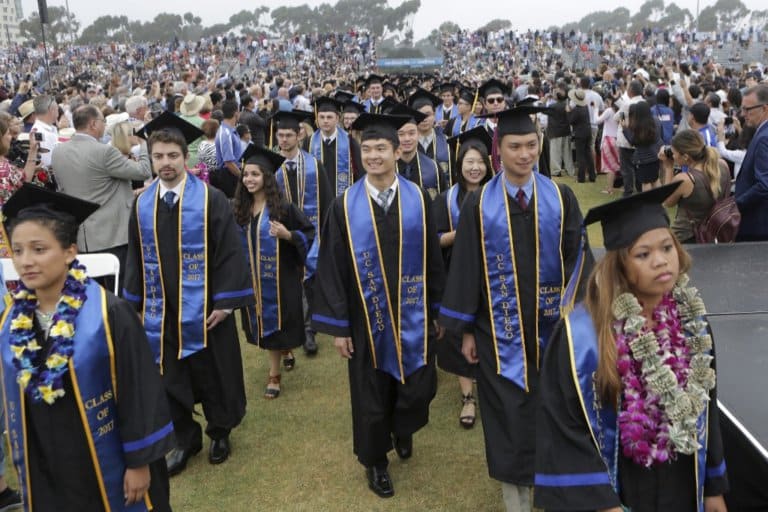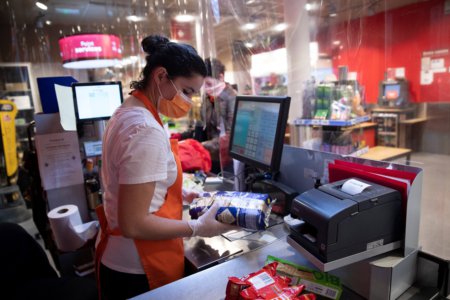
When the COVID-19 pandemic hit, the world was plunged into chaos. From a rising death toll to high levels of unemployment, almost every aspect of life was affected.
Of course, the higher education industry was not spared in this. Many popular study abroad destinations such as the US, the UK, Australia and Canada were forced to close their borders and disrupt learning. As a result, studying abroad hasn’t been an easy ride for international students over the last two years, with many being forced to return home in the midst of their semesters.
With the economy still reeling from the effects of the COVID-19 pandemic, the topic of a global recession is beginning to resurface — adding to the burden faced by international students.
This is especially true in the US. The high tuition fees coupled with the rising cost of living makes the nation one of the most expensive study abroad destinations for international students.
The predicted global recession will only make this worse. Kristalina Georgieva, managing director of the International Monetary Fund (IMF), called the current economic environment a “period of historic fragility”. “The risks of recession are rising,” she told the Los Angeles Times. “Things are more likely to get worse before it gets better.”
The effects of this is already being felt. Inflation in the US is currently around 8.6%, the highest figure since the early 1980s according to the latest report from the Bureau of Labor Statistics. This is affecting the cost of nearly everything, from food and gasoline to housing.
With this, universities across the country have unfortunately had to raise the costs of tuition after holding out throughout the pandemic. For example, Seattle University and Syracuse University are raising their tuition by 3.75% and 4.5% respectively.
Robert Manning, Board of Trustees Chair of the University of Massachusetts, says the 2.5% tuition fee increase across all its campuses is unavoidable.
“We’re facing another endemic problem of hyperinflation, and that’s going to hit us in many regards,” he told CBS Boston. “It’s going to increase the cost of our debt financing. It’s going to increase food costs at all of our campuses. It’s going to increase labor costs and energy costs, and it’s really going to be another difficult period where we’re going to have to be very fiscally responsible to get through this.”
View this post on Instagram
How will the recession affect international students?
As seen from the Great Recession that occurred between 2007 to 2009, one sector that was hit the hardest was the international education market. The upcoming global recession is predicted to do the same — and international students are set to bear the brunt of this.
Here are a few of the major changes that international students in the US can expect to face in the coming year.
1. Studies will become expensive
As mentioned before, the upcoming recession is resulting in many universities raising their tuition fees. Due to this, many students and their families are being left with large student loan debts, with some being unable to afford college entirely.
However, even if colleges and universities choose not to raise their fees, the qualitative costs of higher education will still be higher. For example, spiking inflation may lead to employers lowering salaries or reducing their staff nationwide. Students depending on their parents to repay loans or fund their education may struggle should this stream of income be cut.
This would make things more difficult — especially for international students who are required to shoulder higher expenses compared to domestic learners.
2. The cost of living will increase
Many international students come to the US to chase the American dream. However, with inflation, the cost of living in the US will increase, and this dream may be harder to achieve than expected.
In the US, the cost of tuition fees for international students is typically higher compared to American students. This, on top of the increase in groceries and rent, will require international student to fork out more money to cover their cost of living over the next few years.
Based on a report done by HSBC in 2018, an international student in the US spends an average of USD $99,417 over the duration of their studies. However, this is expected to go up as higher education grapples with inflationary demands.
3. It may be difficult to land a job
As an international student, you must be wondering, “What happens when I graduate and start looking for jobs?”
When the COVID-19 pandemic hit, it caused a near-total shutdown of economies worldwide. This triggered job loss that had not been seen since the Great Depression in the 1930s.
With a recession predicted to hit, many are worried about their state of employment — especially students who are graduating into this uncertain period. Recessions typically mean less hiring and higher unemployment rates.
Though none of this can be confirmed and is completely out of your control, you can stay ahead of the curve. Taking classes in areas that are predicted to be important to the future of work, for example, can do wonders to increase your success rate of getting a job right after graduation.










